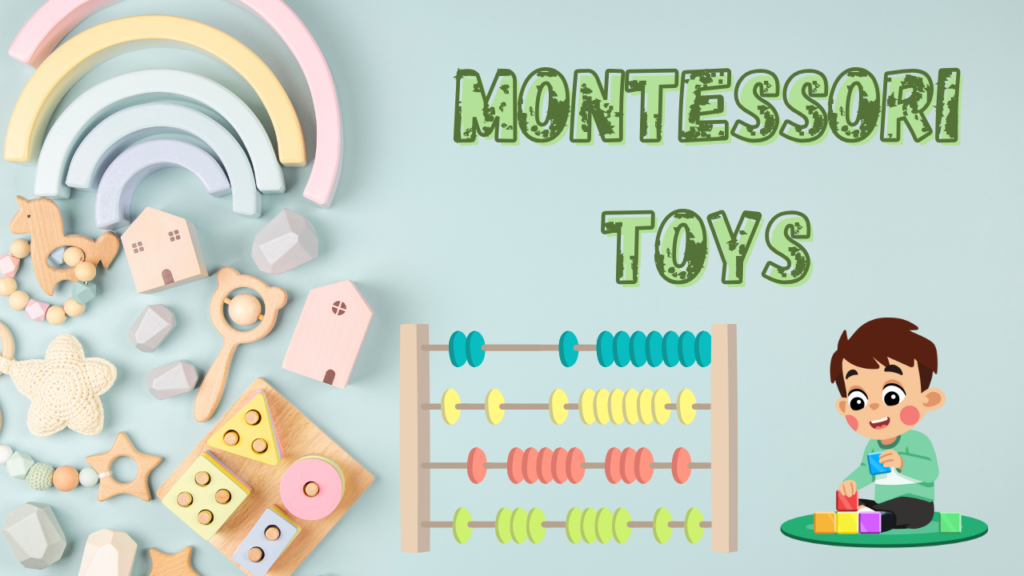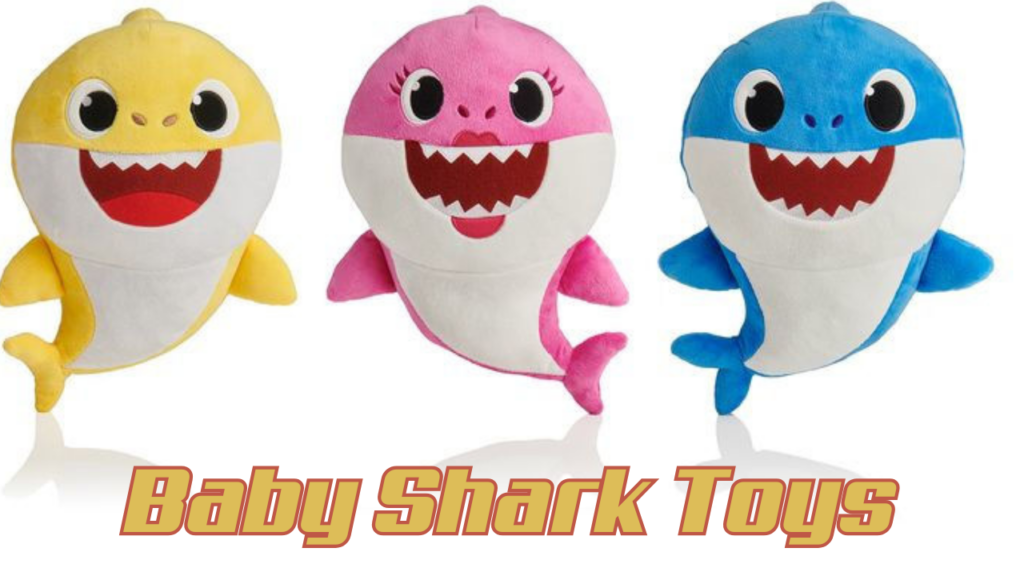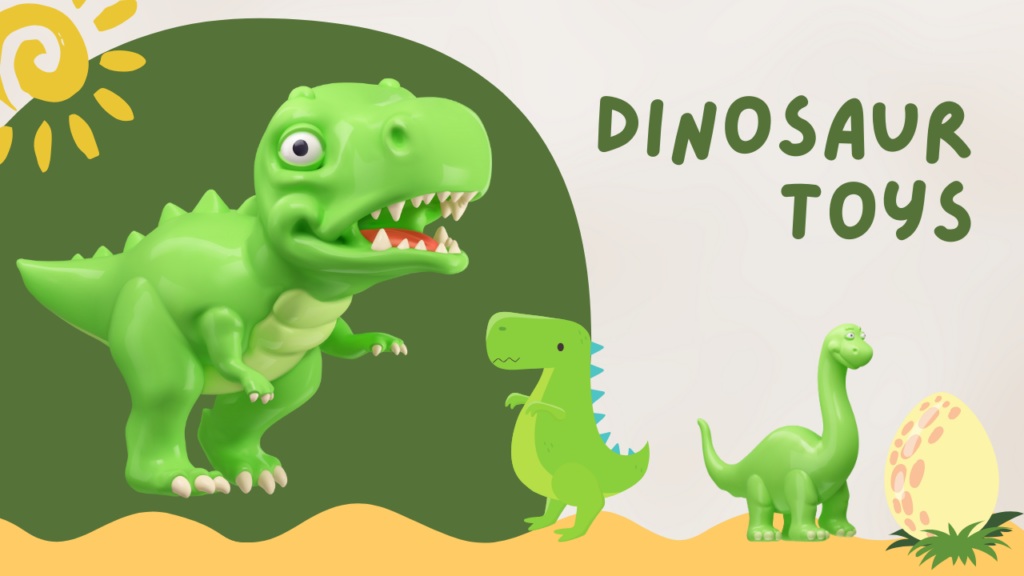🧸🎓
When it comes to raising happy, curious, and intelligent children, the power of play-based learning cannot be underestimated. One method that has gained immense popularity for encouraging independent learning is the Montessori method. Based on the ideas of Dr. Maria Montessori, this approach emphasizes the importance of hands-on learning, individual exploration, and the development of practical skills from a young age.
Montessori toys are designed to support this approach, helping children discover the world around them in a way that’s both fun and educational. These toys are simple, purposeful, and encourage children to use their creativity, fine motor skills, and problem-solving abilities.
In this article, we’ll explore:
- What Montessori toys are
- The benefits of Montessori toys
- Types of Montessori toys
- How to choose Montessori toys
- Top Montessori toys for kids
1. What Are Montessori Toys?
Montessori toys are designed to align with the educational principles established by Dr. Maria Montessori. These toys are typically simple, natural, and open-ended, encouraging children to explore, learn, and develop important skills. Unlike traditional toys, which may focus more on entertainment or instant gratification, Montessori toys are all about fostering self-discovery and independent learning.
The key features of Montessori toys include:
- Natural materials: Most Montessori toys are made from wood, cotton, and wool, offering a tactile experience for children.
- Open-ended play: These toys can be used in various ways, sparking a child’s creativity and imagination.
- Practical life skills: Many toys teach children everyday tasks, such as pouring, sorting, or buttoning, which build their self-confidence and independence.
- Focus on development: Each toy is carefully chosen to suit a child’s age and developmental stage, helping them learn in a holistic way.
2. The Benefits of Montessori Toys
Montessori toys provide numerous benefits for children, including improved cognitive development, emotional growth, and social skills. Here are some of the key advantages:
Promotes Independent Learning:
Montessori toys are designed to encourage self-guided learning. Children are given the freedom to explore and solve problems on their own. This kind of independent learning helps children develop a sense of accomplishment and self-confidence.
Encourages Creativity and Imagination:
Since Montessori toys are open-ended, children can use them in multiple ways. For example, a set of wooden blocks can be used to build towers, houses, or even cars. This kind of play stimulates a child’s imagination and helps them think creatively.
Supports Fine and Gross Motor Skills:
Many Montessori toys focus on improving fine motor skills (such as grasping, sorting, or threading) and gross motor skills (such as running, jumping, or climbing). These toys help children develop the physical coordination they need for everyday tasks.
Enhances Problem-Solving Abilities:
Montessori toys often require children to think critically and figure out how to solve a task or complete an activity. This encourages problem-solving and logical thinking at an early age.
Fosters Concentration and Focus:
Montessori toys are typically simple and engaging, which allows children to focus on one activity at a time. This helps them develop the ability to concentrate and stick with a task until it is completed.
3. Types of Montessori Toys
Montessori toys come in all shapes and sizes, each focusing on a different aspect of child development. Let’s take a look at some of the most common types of Montessori toys:
1. Practical Life Toys:
These toys help children practice real-life tasks and build their self-reliance. They include:
- Pouring sets (where children practice pouring water from one container to another)
- Buttoning boards (to teach how to button and unbutton clothes)
- Cleaning kits (to help children mimic adult chores, such as sweeping and dusting)
- Dressing frames (to practice zipping, tying, and snapping)
2. Sensory Toys:
Sensory toys stimulate a child’s five senses—sight, sound, touch, taste, and smell. They help children develop their awareness of the world around them.
- Texture blocks that feature different textures like smooth, rough, or bumpy.
- Sound shakers filled with beads or pebbles that make noise when shaken.
- Color sorting toys that help children understand color recognition and categorization.
3. Montessori Blocks and Puzzles:
These toys are perfect for building children’s problem-solving skills and spatial awareness. They come in a variety of shapes and sizes, from basic cubes to more intricate 3D structures.
- Building blocks (wooden blocks in various shapes)
- Shape-sorting puzzles that challenge children to fit shapes into the correct slots
- Stacking toys that require children to stack rings or blocks in a specific order
4. Montessori Art and Craft Toys:
Art and craft toys encourage children to express themselves through creative activities. These toys help develop both fine motor skills and imagination.
- Drawing boards or chalkboards to practice drawing, writing, or making patterns.
- Bead threading kits that teach patience and hand-eye coordination.
- Modeling clay or playdough to mold and create figures.
5. Language and Cognitive Toys:
These toys help children learn new words, numbers, and concepts through play. Examples include:
- Letter blocks or alphabet puzzles to help with letter recognition.
- Number toys that introduce counting, sorting, and simple arithmetic.
- Storybooks or flannel boards that encourage storytelling.
4. How to Choose Montessori Toys
When selecting Montessori toys, it’s important to keep a few guidelines in mind to ensure they align with your child’s developmental stage and learning needs. Here are some tips for choosing the best Montessori toys:
Age Appropriateness:
Make sure the toys you choose are suitable for your child’s age and abilities. Younger children benefit from simple toys like stacking rings or shape sorters, while older children might be ready for more complex toys like building blocks or puzzles.
Natural Materials:
Montessori toys often use natural materials like wood, cotton, and wool, which are better for the environment and provide a more tactile experience. Avoid plastic toys, as they tend to be overly stimulating and can lack the sensory benefits of natural materials.
Open-Ended Toys:
Choose toys that encourage creativity and can be used in a variety of ways. Open-ended toys like wooden blocks, playdough, and art supplies allow children to explore endless possibilities and develop their imagination.
Simplicity:
Montessori toys are designed to be simple and minimalist, which helps children focus on the task at hand. Avoid toys that are too flashy or have too many buttons, sounds, or lights, as they can distract from the learning process.
5. Top Montessori Toys for Kids
Here are a few examples of Montessori toys that are perfect for young learners:
1. Melissa & Doug Wooden Building Blocks:
These timeless blocks encourage creativity and problem-solving. Kids can use them to build anything from towers to bridges, helping them develop their fine motor skills.
2. Hape Sorting Cube:
This toy helps children develop cognitive skills by sorting shapes into the correct holes. It’s made from high-quality wood and features vibrant colors, making it both educational and visually appealing.
3. Lovevery Play Kits:
Lovevery offers a range of Montessori-inspired play kits for different age groups. Each kit is designed to stimulate a child’s development, with toys that support cognitive, emotional, and physical growth.
4. PlanToys Stacking Cups:
This simple toy helps children improve their hand-eye coordination and fine motor skills. The stacking cups can be used for sorting, stacking, and even pretend play.
5. Tiny Land Montessori Toys Set:
This versatile set includes a variety of Montessori-inspired toys, such as color-sorting cups, stacking toys, and a wooden puzzle. It’s great for encouraging independent play and problem-solving.
Conclusion: The Magic of Montessori Toys
Montessori toys are more than just toys—they are tools for learning and growth. These toys encourage independent thinking, problem-solving, and creativity, all while supporting a child’s developmental needs. By choosing Montessori toys, you’re giving your child the opportunity to learn through play and discover the world at their own pace.
So, whether you’re a parent, grandparent, or educator, consider adding Montessori toys to your child’s collection. Not only will they provide hours of fun, but they will also help your little one develop essential skills for a bright future! 🌟🎉



